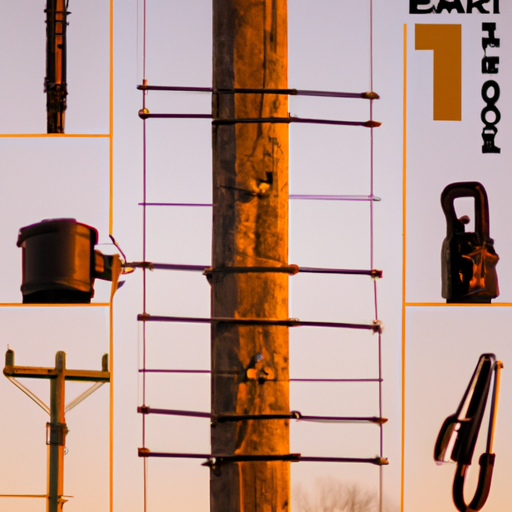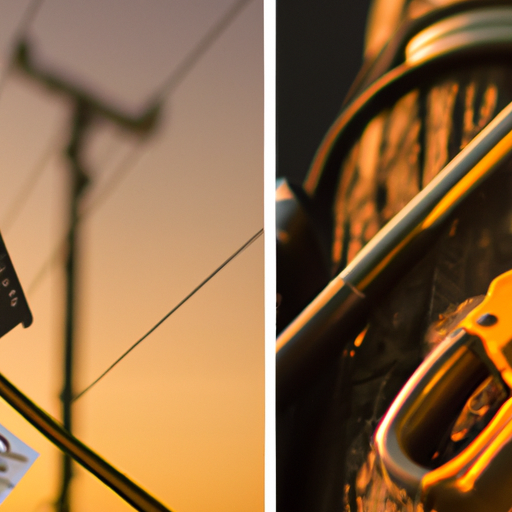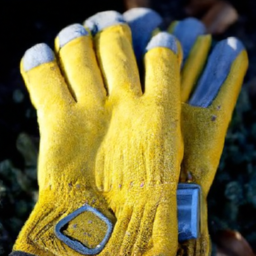Are you interested in learning about the essential tools and equipment that linemen use? In this article, we will discuss the different tools and equipment required for this profession. From safety gear and climbing equipment to specialized tools for repairs and maintenance, we will cover it all. By the end of this article, you will have a good understanding of the equipment linemen rely on to perform their jobs effectively and safely. So, let’s get started!
Essential Tools and Equipment for Linemen
As a lineman, you understand the importance of having the right tools and equipment to ensure your safety and efficiency while working on power lines and poles. Whether you are a seasoned professional or just starting out in the industry, having the essential tools and equipment can make a world of difference in your daily tasks. In this article, we will explore the various categories of tools and equipment that every lineman should have in their arsenal.
Head Protection
One of the most vital aspects of your personal protective equipment (PPE) is head protection. When working at heights, the risk of falling objects is always present, and wearing a hard hat is crucial to safeguarding your head from potential injuries. Hard hats are designed to absorb impact and provide a barrier between your head and any objects that may come into contact with it. Look for hard hats that meet the industry’s safety standards and provide adequate protection.
Additionally, helmet liners are also essential when working in extreme weather conditions. They offer insulation to keep your head warm in cold temperatures and wick away sweat in hot and humid environments. They are typically made of moisture-wicking fabric and can be easily worn under your hard hat for added comfort.
Eye Protection
Protecting your eyes is another critical aspect of being a lineman. Your eyes are susceptible to various hazards such as flying debris, dust, and harmful UV rays. Safety glasses are a must-have item that should be worn at all times. They are designed to withstand impact and provide a barrier between your eyes and any objects that could potentially cause harm.
In some situations, safety glasses may not be enough, and goggles should be used instead. Goggles offer full eye protection by sealing around your eyes, preventing any debris or particles from entering. They are particularly useful when working in dusty or windy conditions.
For tasks that require additional face protection, such as cutting or grinding, face shields should be worn. They provide a transparent barrier that covers your entire face, protecting not only your eyes but also your nose and mouth from any potential dangers.
Hand Protection
When it comes to hand protection, lineman gloves are your best friend. Insulated gloves are specifically designed to protect you from electric shock and burns while working on live wires. They are typically made of materials that offer excellent electrical insulation properties, such as rubber or neoprene.
Rubber gloves are another type of hand protection that you should have in your toolkit. They provide a barrier between your skin and any chemicals or liquids you may come into contact with while on the job. They are especially useful when working with transformers or handling corrosive substances.
For added protection and comfort, leather protectors should be worn over your insulated or rubber gloves. Leather protectors offer an extra layer of insulation and provide resistance against cuts, punctures, and abrasions. They are crucial in ensuring the longevity of your gloves and maintaining their effectiveness.
Fall Protection
As a lineman, working at heights is an inevitable part of your job. To ensure your safety, fall protection equipment is essential. A safety harness is a key component of fall protection, as it securely attaches you to an anchor point, preventing you from falling in the event of a slip or trip. Look for harnesses that are adjustable, comfortable, and meet the necessary safety standards.
Using lanyards in conjunction with your safety harness is also crucial. Lanyards are designed to absorb energy in the event of a fall and help reduce the impact on your body. They typically have a shock-absorbing mechanism that slows down your fall, minimizing the risk of injury.
Anchor points are another critical component of fall protection. They serve as secure attachment points for your safety harness and lanyards. Anchor points should be strong, stable, and able to sustain the weight of a lineman in the event of a fall. Inspect the anchor points regularly to ensure they are in good working condition.
Climbing Gear
When it comes to climbing poles and towers, having the right gear can significantly impact your efficiency and safety. Climbing spurs, also known as gaffs or hooks, are essential tools that enable you to ascend and descend poles with ease. They are typically made of steel and feature sharp spikes that grip onto the pole, providing stability and traction.
Climbing belts are another crucial piece of equipment for linemen. They are designed to support your weight while working at heights, preventing fatigue and reducing the risk of falls. Look for climbing belts that are adjustable, comfortable, and provide lumbar support for long hours of work.
Safety straps are often used in conjunction with climbing belts. They are made of durable nylon and are used to secure yourself to the pole, allowing you to work with both hands-free. Safety straps provide an additional layer of safety, reducing the risk of accidents while climbing or working on poles.
Cutting Tools
Being able to cut and trim vegetation and other obstacles is essential for a lineman. Pole saws are specifically designed for this purpose. They are long, extendable saws that allow you to reach higher branches or obstacles safely. Look for pole saws with a comfortable grip, sharp blades, and a lightweight design for ease of use.
Cable cutters are another essential tool for linemen. They are used to cut through cables and wires with precision. Cable cutters come in various sizes and designs, so choose one that is suitable for the diameter and type of cables you work with regularly.
Bolt cutters are handy for cutting through heavy-duty locks, chains, or bolts. They are designed to provide the necessary leverage and strength to cut through tough materials. Look for bolt cutters with long handles for increased cutting power and ergonomic grips for comfortable use.
Measuring Equipment
Accurate measurements are crucial when working with electrical systems, and having the right measuring equipment is essential. Tape measures are a staple tool that every lineman should have. They are used to measure distances, heights, and dimensions accurately. Look for tape measures with a durable housing, clear markings, and a locking mechanism to ensure precise measurements.
Meter sticks are also useful for measuring larger distances or depths. They are longer than regular rulers and typically have metric and imperial measurements marked on them. Meter sticks are handy for measuring the height of poles or the depth of trenches.
Voltage testers are another tool that should be in every lineman’s toolkit. They are used to detect the presence of electrical voltage in a circuit without direct contact. Voltage testers come in various forms, such as pen-style testers or digital multimeters, and provide real-time readings to ensure your safety while working on live wires.

Insulating Tools
Insulating tools are a linemans’ best defense against electrical shocks and mishaps. Insulated screwdrivers are essential for any tasks that involve working near live electrical equipment. They are designed with insulated handles that provide protection against electrical shock while allowing you to securely fasten or loosen screws.
Insulated pliers are another must-have tool for linemen. They come in various shapes and sizes and are used for gripping, bending, or cutting wires. Insulated pliers offer protection against electrical shock and provide you with a secure grip while working with live wires or components.
Insulated wrenches are often used for tightening or loosening nuts and bolts in electrical systems. They come in various sizes to accommodate different fasteners. Insulated wrenches provide the necessary insulation to protect you from electrical shocks while working on live equipment.
Tool Bags
To keep your tools organized and easily accessible, having the right tool bag is crucial. Utility belts are a popular and practical choice for linemen. They feature multiple pockets and compartments that can hold a variety of tools and equipment. Utility belts are worn around your waist, providing easy access to your tools while keeping your hands free.
Bucket bags are another option for linemen who prefer to carry their tools in a bucket rather than on a belt. Bucket bags are designed to fit snugly inside a standard utility bucket and provide ample storage space for your tools. They typically have multiple pockets and pouches for organization and easy retrieval.
For linemen who require more extensive storage capacity, climbing backpacks are an ideal choice. Climbing backpacks offer ample space for all your tools, equipment, and personal items. They typically feature multiple compartments, adjustable straps, and durable materials to withstand the rigors of the job.

Conclusion
As a lineman, having the essential tools and equipment is vital to ensure your safety, efficiency, and effectiveness in your daily tasks. From head protection and eye protection to hand protection and fall protection, each category plays a crucial role in safeguarding you from potential hazards. Additionally, climbing gear, cutting tools, measuring equipment, insulating tools, and tool storage options all contribute to your success in the field. By investing in high-quality tools and staying updated on the latest safety standards, you can confidently tackle any job that comes your way as a lineman. Remember, your safety is of utmost importance, so always make sure to wear your required personal protective equipment and follow proper safety protocols. Stay safe!







